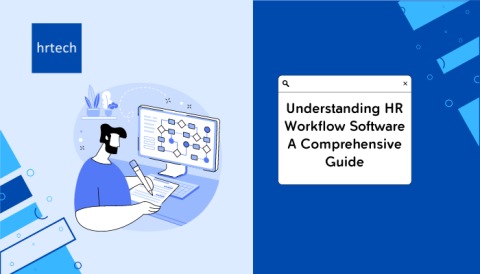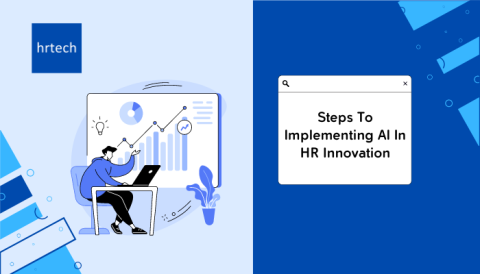In a rapidly evolving business landscape, HR technology has emerged as a critical enabler for streamlining processes and enhancing workforce efficiency. An HR technologist bridges the gap between traditional HR practices and modern technology, driving digital transformation within human resources.
RChilli, a leader in HR technology solutions, supports HR technologists by offering innovative solutions tools that simplify recruitment, improve data accuracy, and enable better decision-making. This blog explores an HR technologist’s key responsibilities and roles, with insights into how RChilli empowers them to excel.
What Does An HR Technologist Do?
An HR technologist specializes in implementing and managing HR technologies to optimize HR functions, enhance employee experiences, and support organizational goals. Their role involves automating HR tasks, ensuring data security, and leveraging analytics to make data-driven decisions.
With solutions like RChilli’s can easily streamline the recruitment process and allow recruiters to focus more on developing impactful startegies.
Key Responsibilities Of An HR Technologist
An HR technologist plays a pivotal role in transforming HR operations. Here are their primary responsibilities and how RChilli makes their work easier:
1. Shaping the HR technology roadmap
- Collaborating with HR leadership to align technology with organizational goals.
- Providing insights into emerging technologies and their potential impact on HR operations.
How RChilli Helps:
Rchiili’s advanced solutions offer easy integration with existing HRIS systems, enabling HR technologists to map out a future-ready HR technology strategy without disrupting current workflows.
2. Managing HR systems and data
- Administering, updating, and troubleshooting Human Resource Information Systems (HRIS).
- Ensuring HR data accuracy and compliance with data privacy regulations.
- Securing sensitive employee data through robust encryption and access controls.
How RChilli Helps:
RChilli Data Hygiene allows recruiters to maximize recruitment efficiency with continuously updated candidate data, streamlining their ability to match precise job profiles with the right skills.
3. Automating HR processes
- Identifying manual workflows that can be automated to save time and reduce errors.
- Implementing technologies that enhance efficiency, such as automated payroll systems and attendance tracking.
How RChilli Helps:
Enhance hiring efficiency with its industry-leading AI-powered solutions and multi-level search, empowering HR professionals to match the right talent with the perfect opportunities efficiently.
4. Vendor and partner collaboration
- Evaluating and selecting vendors for HR software and tools.
- Managing vendor relationships to ensure smooth implementation and upgrades.
How RChilli Helps:
Rchiili’s seamless integrations with Applicant Tracking Systems (ATS) and other HR platforms make it a reliable partner for HR technologists.
5. Driving employee engagement through technology
- Using digital platforms to improve communication, recognition, and feedback processes.
- Implementing tools for career development and performance management.
How RChilli Helps:
By providing actionable insights through enriched data, RChilli enables HR technologists to build meaningful engagement strategies that resonate with employees.
Now that we have established their key responsibilities, let’s dive into the strategic roles that make HR technologists true innovators.
Strategic Roles Of An HR Technologist
An HR technologist isn’t just a technical expert; they are a strategic partner in driving HR innovation and aligning technology with business objectives. This section explores the key strategic responsibilities of an HR technologist and their impact on modern enterprises.
- Aligning HR tech with business strategies
HR technologists ensure that technology investments align with organizational objectives. They collaborate with leadership to select tools that optimize HR functions and support business growth.
How RChilli Helps:
Rchilli’s AI-driven solutions align seamlessly with organizational goals, offering the scalability and flexibility needed for long-term success. - Driving technology adoption
The successful implementation of HR technologies relies on training and change management. A corporate training service provider can play a crucial role in this process by offering specialized training programs. HR technologists ensure employees understand and adapt to new systems through effective onboarding and continuous support.
How RChilli Helps:
RChilli’s user-friendly tools simplify adoption, ensuring that HR teams can quickly integrate new features without extensive training. - Leveraging people analytics
Using data analytics and predictive models, HR technologists provide insights into workforce trends, performance metrics, and employee satisfaction. This data-driven approach supports informed decision-making and strategic workforce planning.
How RChilli Helps:
RChilli’s enriched and structured data enables HR technologists to unlock deeper insights, making workforce planning more precise and impactful. - Enhancing employee experience
HR technologists streamline HR processes to improve accessibility for employees. From self-service portals for payroll to mobile-friendly engagement tools, their efforts simplify interactions and enhance the overall employee experience.
How RChilli Helps:
By automating key HR processes like candidate screening and job matching, RChilli reduces delays, improving both candidate and employee satisfaction.
Impact Of HR Technologists On Modern Businesses
The influence of HR technologists extends across several dimensions, shaping modern business practices in significant ways:
- Increased operational efficiency
By automating repetitive tasks such as payroll processing and attendance tracking, HR technologists reduce administrative burdens, allowing HR teams to focus on strategic initiatives.
How RChilli Helps:
RChilli’s AI-powered solutions eliminate redundant manual processes, saving time and resources. - Enhanced data security and complianceHR technologists play a vital role in safeguarding sensitive employee data. Their expertise in data privacy regulations ensures that HR systems comply with legal standards, mitigating the risk of penalties.
How RChilli Helps:
With robust data encryption and GDPR-compliant solutions, RChilli helps HR teams ensure data integrity and legal compliance. - Improved employee engagement
With tools for feedback, recognition, and career development, HR technologists foster a culture of continuous improvement and employee satisfaction, which directly impacts retention rates.
How RChilli Helps:
RChilli’s talent management features streamline employee engagement processes, making it easier to build a thriving workplace culture. - Better decision-making through analytics
Access to real-time data and advanced analytics allows HR leaders to make informed decisions, from workforce planning to performance improvement strategies.
How RChilli Helps
RChilli’s data enrichment capabilities provide HR teams with accurate insights, enabling smarter decisions across the board.
With these impacts in tow, it’s pretty clear how crucial HR technologists are—but why exactly do they hold this spot in business operations?
Why Do Businesses Need HR Technologists?
In today’s competitive environment, businesses must prioritize the role of HR technologists. Here’s why:
- Scalability: As businesses grow, HR technologists ensure systems can handle increased complexity without compromising efficiency.
- Future-readiness: Their knowledge of HR tech trends keeps organizations ahead of the curve in adapting to technological advancements.
- Employee-centric focus: By improving HR systems, HR technologists create a more satisfying workplace experience for employees.
RChilli’s AI-powered solutions empower HR technologists to address these needs effectively, positioning businesses for success in an evolving workforce landscape.
Conclusion
The role of an HR technologist has become central to modern business operations. By automating processes, ensuring compliance, and enhancing employee engagement, they drive efficiency and innovation within HR departments.
With cutting-edge tools from Rchilli, businesses can transform their HR operations, streamline workflows, and improve decision-making through enriched data.Ready to take your HR processes to the next level? Discover how RChilli’s solutions can empower HR technologists to achieve their goals and create meaningful organizational change. Contact us today for a demo!





